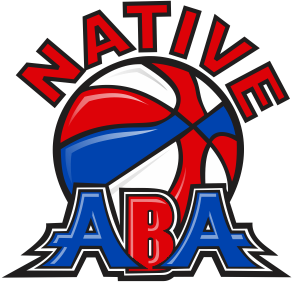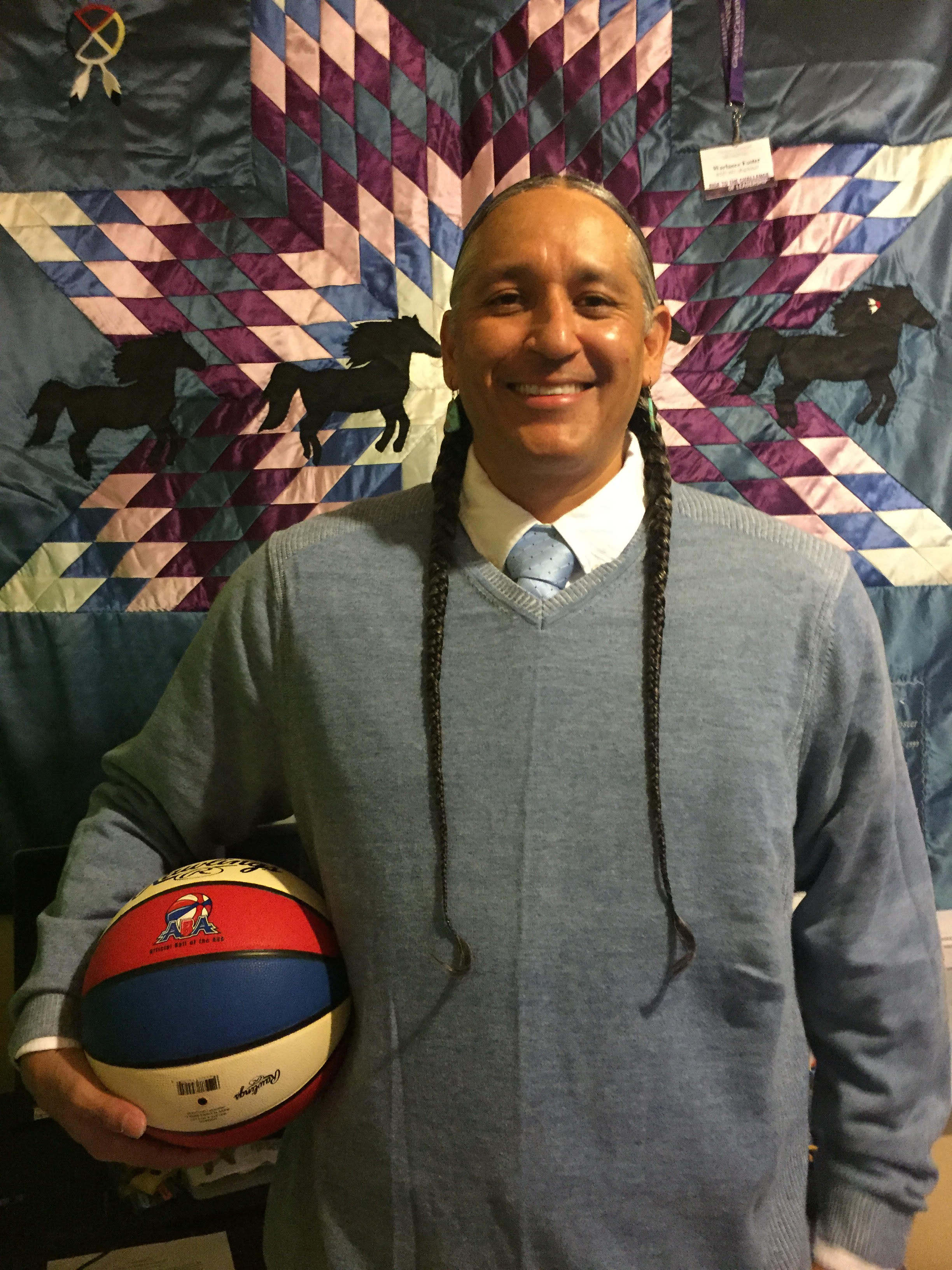INDIANAPOLIS — The American Basketball Association (ABA) announced on Monday the launch of the Native ABA, a new initiative that will feature Native American players from across Indian Country.

The ABA named WarLance Foster (Lakota/Dine) to be the CEO of Native ABA. Foster played professional basketball in Europe after trying out for a spot on the Denver Nuggets roster in 2003.
Want more Native News? Get the free daily newsletter today.
The Native ABA was the brainchild of Foster, who took the concept to Joe Newman, the founder and CEO of the ABA, based in Indianapolis.
"Showcasing the talents of Native American basketball players will allow more teams around the country and internationally to see the skills and abilities possessed by Native players," Newman said in a statement. "By increasing the attention surrounding Native American players, more opportunities will arise. The more that is invested in Native American athletes, the more that can be developed and expanded by encouraging more Tribes and players to participate."
Foster says the Native ABA will allow Native Americans the opportunity to develop their basketball skills through training, discipline and hard work.
“We are trying to give Native Americans the opportunity to play professional basketball. This will allow us to recruit, not only players, but also coaches to develop a good foundation. Our goal is to get Native players into professional basketball. There are opportunities to play professionally in Europe. Basketball is getting big in China, as well. Our ultimate goal is to get Native American players into the NBA,” Foster told Native News Online.
Former NBA all-star A.C. Green, who is part Native American and a former owner of several ABA teams, says the ABA would be a great training ground for Native American players.

“I have nothing but excitement for Native players to live their dreams to play professional basketball,” Green told Native News Online. “I have seen the passion when Native Americans play basketball with my own eyes. If we can create an atmosphere for them, I am all for it.”
With hopes for other Native-owned ABA teams, the Native ABA will be based in a yet-to-be-determined city in northeastern Arizona.
“With the growth and development of the first Native American team within Indian Country, additional teams and tribes can be added. The goal is to expand Native ABA to include 10-12 tribal teams, which will allow more Native players to participate and allow each tribe to manage and operate their own team. We have put together a full expansion program and will actively pursue Tribes nationwide. And we're also considering the same development for a Women's Native ABA,” Foster said.
Monday’s announcement comes two weeks after Sterlin Harjo (Seminole) NBA all-star LeBron James and writer/director Sydney Freeland (Dine) announced they will produce Rez Ball, a feature film for Netflix.
More Stories Like This
Four Winds South Bend Upgrades to Class III Gaming CasinoNative News Online Wins Two Awards from Native American Journalists Association
Wahlberg Brothers Are a Big Hit at Indian Gaming Tradeshow and Convention in Las Vegas
Native Gro Offers Tribes a ‘One-Stop Shop’ for Entering the Cannabis Industry
Help us defend tribal sovereignty.
At Native News Online, our mission is rooted in telling the stories that strengthen sovereignty and uplift Indigenous voices — not just at year’s end, but every single day.
Because of your generosity last year, we were able to keep our reporters on the ground in tribal communities, at national gatherings and in the halls of Congress — covering the issues that matter most to Indian Country: sovereignty, culture, education, health and economic opportunity.
That support sustained us through a tough year in 2025. Now, as we look to the year ahead, we need your help right now to ensure warrior journalism remains strong — reporting that defends tribal sovereignty, amplifies Native truth, and holds power accountable.
 The stakes couldn't be higher. Your support keeps Native voices heard, Native stories told and Native sovereignty defended.
The stakes couldn't be higher. Your support keeps Native voices heard, Native stories told and Native sovereignty defended.
Stand with Warrior Journalism today.
Levi Rickert (Potawatomi), Editor & Publisher

